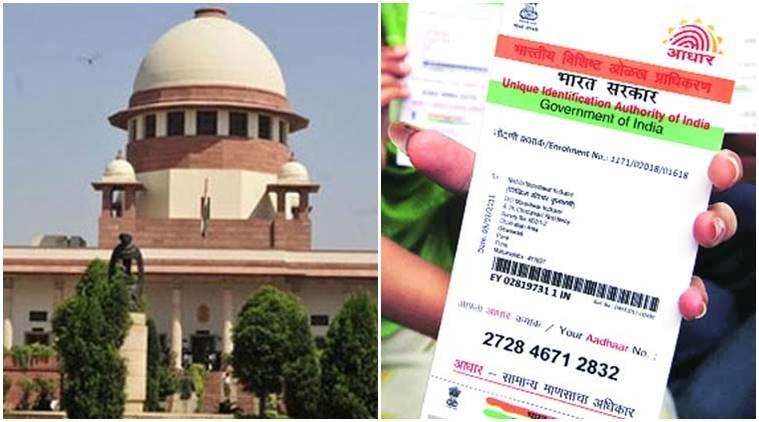Aadhaar Affects Not Just Fundamental Rights, But Federalism as Well

Image Courtesy: The Indian Express
In the first session on Day 10 of the Aadhaar hearings that took place on February 13, Senior Counsel Kapil Sibal advanced his arguments. His arguments began by drawing a comparison with the Biometric Database Law of Israel. The Israel law makes the ID cards voluntary, whereas by specifically making Aadhaar mandatory for availing subsidies, benefits and services, there is no question that the Act makes Aadhaar mandatory. The Israel law has been defined for a specific purpose, whereas the purpose for which data is collected under the Aadhaar Act is vague. Sibal further argued that the Act provides for information to be disclosed in the interest of ‘national security’. Till date no law has specifically defined ‘national security’, meaning that it is still open to judicial interpretation. The Senior Counsel added that this provision has the potential for misuse. To illustrate this point he relied on the Judgment delivered in Justice K S Puttaswamy (Retd) and Anr v Union of India and Ors also known as the Right to Privacy Case. In this case, the Supreme Court recognised the power of metadata and its potential for misuse. Kapil Sibal argued that the concentration of information in one entity accords tremendous power of control to that entity.
He further argued that the Act does not pass the test of ‘proportionality’. There are three parts to determining whether a legislative action is proportional or not; (a) the legislative objective is sufficiently important to justify limiting a fundamental right; (b) the measures designed to meet the legislative objective are rationally connected to it; and (c) the means used to impair the right are no more than is necessary to accomplish the objective. In this case, he challenged the Aadhaar Act on the basis that the stated aims of the Act are for targeted delivery of subsidies, benefits, and services. The price that the average citizen will pay for these benefits has no rational nexus with the stated aims.
He also raised the issue that there are several entitlements conferred on non-residents and whether the State would deny these entitlements for want of an Aadhaar number. Several entitlements and benefits that are enjoyed by citizens find their origin in the Fundamental Rights. By making Aadhaar mandatory to avail of these benefits the State is placing a condition on rights that are conferred without any conditions being imposed by the Constitution.
In the second session, Kapil Sibal continued his arguments by highlighting the difference between Aadhaar and other methods of identification. Identification documents such as a passport and driving license confer identity to the individual, whereas Aadhaar only seeks to ‘authenticate’ the identity of the individual. He referred to the Minerva Mills decision wherein the Supreme Court had laid down that meeting the objectives of the Directive Principles of State Policy should not abrogate Fundamental Rights. The Senior Counsel concluded his arguments by stating that the present case is the most important case since independence. ADM Jabalpur dealt with issues arising out of the emergency, whereas Aadhaar affects all, irrespective of whether an emergency has been declared or not.
After Sibal concluded his arguments, Senior Counsel Gopal Subramanium took over. Referring to the Right to Privacy case, the Senior Counsel began his arguments by stating that Privacy is a Fundamental Right. Privacy at its root is about human dignity, and Aadhaar accords priority to the electronic individual over the physical person. He reiterated that the aggregation of data is a dangerous proposition and went further to say that the Aadhaar Act envisages data as property, as a means to earn money. He went further stating that the Constitution has highlighted certain specific circumstances where Fundamental Rights may be curtailed, and beyond these certain circumstances, it seeks to restrain the State from encroaching on these Rights. Referring to Part XI of the Constitution – Centre-State Relations – the Constitution lays down a decentralised form of administration, Aadhaar, on the other hand, seeks to centralise it.
Get the latest reports & analysis with people's perspective on Protests, movements & deep analytical videos, discussions of the current affairs in your Telegram app. Subscribe to NewsClick's Telegram channel & get Real-Time updates on stories, as they get published on our website.
























